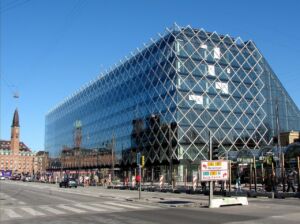News
Dansk Industri turning up the heat on the ‘new government’ before they’ve even been elected!
This article is more than 3 years old.

The state of municipal buildings and paltry commitments to increasing the labour force reflect poorly on the government, contends Dansk Industri (photo: Orf3us)
Heading into the elections Dansk Industri (DI) has outlined the problems they hope the new government will prioritise and address. The issues primarily revolve around optimising ways that will, in their view, help to achieve a 70 percent reduction in CO2 emissions.
Better insulation needed in municipal buildings
Getting through the winter amid an energy crisis is difficult enough under any circumstances, but the situation is worsened in Denmark due to poor insulation in the country’s municipal buildings, contends DI.
In addition to poor insulation and leaky windows, about a quarter of municipal buildings are heated by a gas broiler. The effect of this is that 17,969 municipally-owned buildings have an energy label of D to G – buildings given a label of G use approximately 20 times more energy than those given an A grade. In total, 64 percent of buildings are consuming energy that could be saved with some much-needed updating and renovations.
If Denmark hopes to thrive in this period of economic hardship and cut emissions by 70 percent, the new government will need to prioritise increasing the energy efficiency of these buildings. A requirement exists for an annual energy renovation rate of at least 3 percent of state-owned buildings. Anders Stouge, the head of DI Byggeri, argues that there should be an equivalent requirement for municipal buildings.
“There are big savings to be made both in the short and long term by energy-renovating the buildings. The cheapest energy now is the energy we do not use, and therefore we must minimise heat consumption as much as possible,” said Stouge.
Increasing the workforce
Another area DI feels the new government must improve is labour supply. In this election period, the labour supply only increased by 1,700. DI argues that an increase in the region of 50,000 will be required to meet the challenges posed by the green transition and the ambitious future the business community sees for Denmark.
“We will not get a real green transition, the best education or secure the foundation for welfare without greater reform ambitions than we have had in the current election period, when the labour supply was only increased by 1,700 people,” said DI head Sandahl Sørensen.
“The business community has great ambitions for Denmark and is ready to further speed up, for example, the green transition, but it requires that the upcoming Parliament secures enough resources, manpower and finances.”
Among other things, DI proposes a decrease in the tax on work as well as an increased emphasis on foreign labour to help boost the labour force.










































